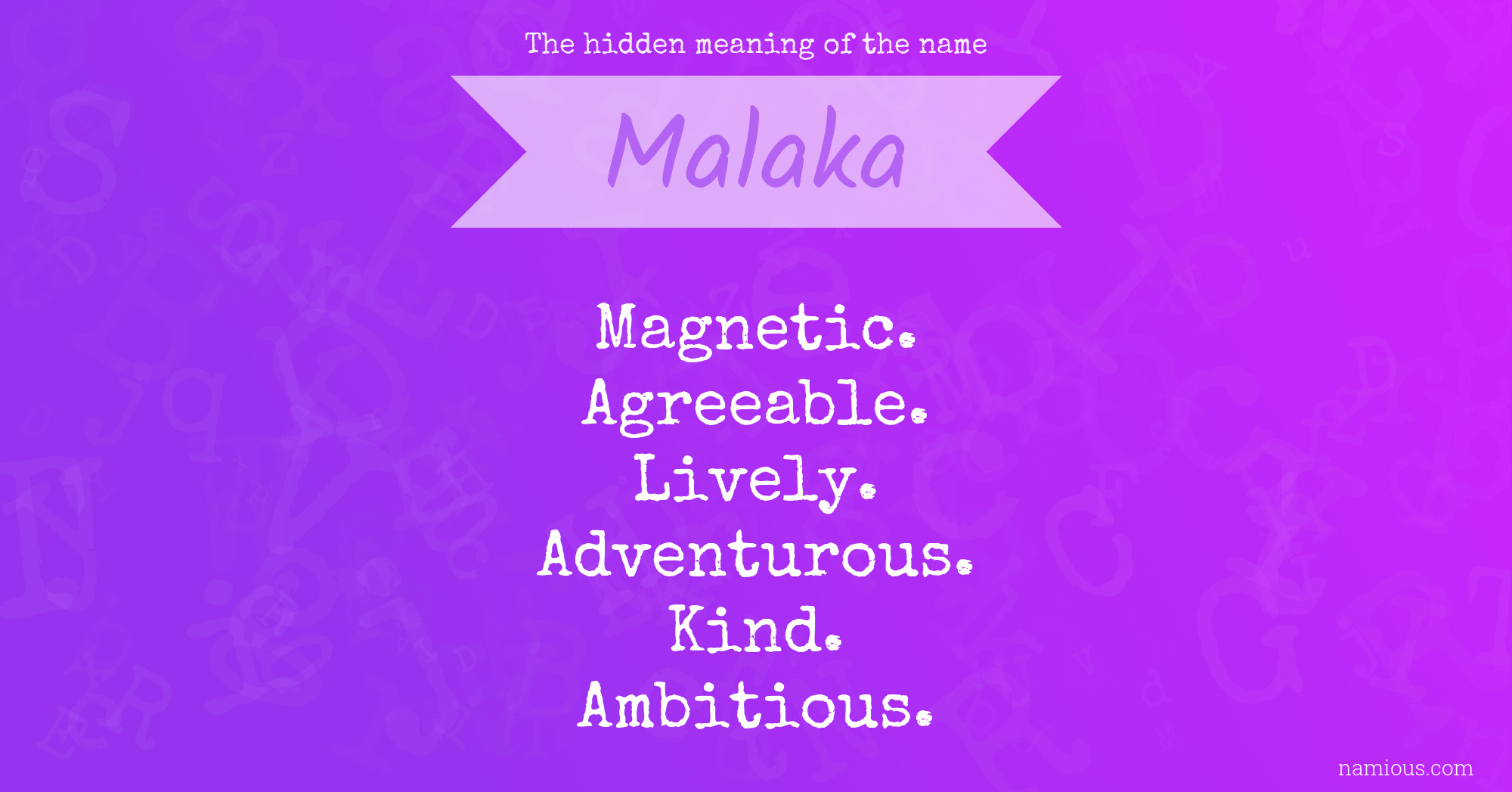The word "malaka" (μαλάκα) is arguably one of the most recognizable, yet frequently misunderstood, terms from the Greek language. Far from a simple expletive, its meaning and usage are deeply interwoven with context, tone, and the relationship between speakers. It's a linguistic chameleon, capable of expressing everything from intense frustration to affectionate camaraderie, often leaving non-native speakers utterly bewildered.
For anyone venturing into Greek culture or simply curious about its vibrant linguistic landscape, understanding "malaka" is a crucial step. It's a word that encapsulates the fluidity and expressiveness inherent in Greek communication, challenging our preconceived notions of what a "swear word" truly means. Let's embark on a journey to unravel the layers of this fascinating term, exploring its grammatical nuances, diverse applications, and surprising journey across global dialects.
Table of Contents
- The Linguistic Labyrinth of Malaka: Singular vs. Plural
- Unpacking the Core Meaning: What Does Malaka Truly Imply?
- Malaka in Context: From Insult to Intimacy
- The Enigmatic "Rai Malaka": An Intensifier's Power
- Pronunciation Puzzles: Malaka or Malakia?
- Malaka's Global Journey: From Athens to Australia
- The Appeal of Greek Swear Words: A Cultural Deep Dive
- Grammatical Flexibility: Adjective, Noun, and More
The Linguistic Labyrinth of Malaka: Singular vs. Plural
One of the first points of confusion for those encountering the word is the subtle yet significant difference between “malaka” and “malakas”. This distinction is rooted in a fundamental aspect of the Greek language: noun cases. Unlike English, Greek has something called noun cases, which means a noun slightly changes, depending on the context of its use in a sentence. This change indicates its grammatical function – whether it's the subject, object, or possessor, among other roles.
While the concept of noun cases might seem daunting, English has a little bit of that too, though it's far less extensive. Consider the pronouns "I" (subject) and "me" (object), or "he" (subject) and "him" (object). The word changes form based on its role. In Greek, this applies to many more words, including nouns. For "malaka," the difference between the nominative (subject) and vocative (direct address) forms is key.
Specifically, "malakas" (μαλάκας) is typically the nominative singular form, used when referring to someone as "a wanker" or "an idiot" in a descriptive sense, often as the subject of a sentence (e.g., "He is a malakas"). However, when directly addressing someone, the vocative case is used, which for masculine nouns ending in -as, often drops the final 's', resulting in "malaka" (μαλάκα). This is why you hear "malaka" so frequently – it's primarily used as a direct address, like calling someone "mate," "dude," or, indeed, "wanker." The provided data explicitly states, "malakas (μαλάκας) is the plural," which is a common misconception; it is actually the singular nominative. The plural would be "malakes" (μαλάκες). This highlights the nuances that can easily confuse learners and demonstrates how the word’s form is intrinsically tied to its usage and grammatical context.
Unpacking the Core Meaning: What Does Malaka Truly Imply?
At its most literal and offensive, malaka means jag off, jerk off or wanker (for you brits). The root of the word, "malakos" (μαλακός), means "soft," and in ancient Greek, it could refer to someone effeminate or weak. Over time, its meaning evolved to encompass someone foolish, idiotic, or contemptible. The data points out that "Misthios (μίσθιος) means mercenary and malaka (μαλάκα) means wanker," providing a clear, albeit harsh, translation.
This core meaning of "wanker" or "idiot" is evident in direct translations. For instance, in a scenario where in the german subtitles it says for these malákas, these assholes (but obviously in german), it underscores the derogatory intent. It’s a word used to express contempt, frustration, or anger towards someone perceived as foolish, annoying, or deserving of a strong rebuke. When used in this context, the word carries significant weight and is genuinely offensive.
Malaka in Context: From Insult to Intimacy
Perhaps the most perplexing aspect of "malaka" for outsiders is its astonishing versatility. While its literal meaning is deeply offensive, its actual usage spans a wide spectrum, from a harsh insult to a casual, even affectionate, term of address among close friends. This is where the crucial role of context, tone of voice, and the relationship between speakers comes into play. It’s a prime example of how depending on the context of malaka being used it can be used as an almost anything – from an intensifier to a filler word.
Is Malaka Inappropriate or Widespread?
This question gets to the heart of the word's cultural paradox: Is malaka/malakia considered a very inappropriate word in greece or is it used widespread among most people? The answer is, surprisingly, both. In formal settings, among strangers, or when directed with genuine anger, "malaka" is absolutely inappropriate and offensive. It can escalate a situation quickly and is generally considered vulgar.
However, among friends, family members (especially younger generations), or in very casual social circles, its usage is incredibly widespread. It can function as a filler word, an exclamation of surprise or frustration (e.g., "Oh, malaka!"), a term of endearment (akin to "mate" or "dude"), or even a way to express playful exasperation. Imagine two friends teasing each other; one might playfully call the other "malaka" without any malicious intent. It becomes a marker of familiarity and a relaxed social environment. This duality is why an outsider might overheard two cypriot guys say it about 15 times in the span of one conversation and be utterly confused by its varied emotional tones.
The Enigmatic "Rai Malaka": An Intensifier's Power
The observation, "What does “rai malaka” mean, Overheard two cypriot guys say it about 15 times in the span of one conversation, I know what malaka means, but what does the “rai” part mean?" points to another layer of complexity. The word "rai" (ράι) is a slang intensifier, particularly common in Cypriot Greek, though also heard in mainland Greece. It doesn't have a direct, standalone meaning in this context, but rather serves to amplify or emphasize the word it precedes or follows.
When combined with "malaka," "rai malaka" can express heightened frustration, disbelief, exasperation, or even a strong sense of camaraderie, depending on the tone. It's similar to adding "bloody" or "f***ing" in English for emphasis, but without necessarily carrying the same level of vulgarity as the English counterparts. For example, "Rai malaka, you won't believe what happened!" could express extreme surprise, while "Rai malaka, hurry up!" conveys strong impatience. Its frequent use in casual conversation among friends or acquaintances underscores its role as a verbal tic and an emotional amplifier rather than a literal insult in every instance.
Pronunciation Puzzles: Malaka or Malakia?
Another common point of confusion for non-native speakers revolves around pronunciation and related terms: Is the proper (english) prononciation malaka or malakia, I've heard both words used and i'm confused, Also, what is the meaning? This confusion is entirely understandable, as the two words, while related in root, have distinct meanings and usages.
The pronunciation for the term we've been discussing is indeed "malaka" (μαλάκα), with the stress on the second 'a'. The 'k' sound is pronounced as in "kite." The word "malakia" (μαλακία), on the other hand, is a different word entirely, though it shares the same "soft" root. Its pronunciation places the stress on the 'i' sound, making it "ma-la-KEE-a."
Understanding "Malakia"
"Malakia" (μαλακία) primarily translates to "masturbation" or "onanism." However, much like "malaka," it has evolved in common parlance to also mean "nonsense," "stupidity," "bullshit," or "a foolish act." For example, someone might exclaim, "Ti malakia!" (Τι μαλακία!) meaning "What nonsense!" or "What a stupid thing to do!" It can also be used to describe a bad situation or a screw-up. While both "malaka" and "malakia" can express frustration or contempt, "malakia" tends to refer more to a situation, an action, or an abstract concept of foolishness, whereas "malaka" is almost always directed at a person.
Understanding this distinction is vital to avoid significant social gaffes. Mispronouncing "malaka" as "malakia" or using "malakia" when you mean to address someone can lead to very different, and potentially more offensive, interpretations. It underscores the importance of not just knowing a word's translation, but also its correct form and pronunciation within the broader linguistic context.
Malaka's Global Journey: From Athens to Australia
The pervasive nature of the Greek diaspora and cultural exchange has led to "malaka" finding its way into other languages and dialects. The data notes that “malaka” has almost made it into australian english. This is a fascinating example of how language evolves and borrows, particularly in multicultural societies. Australia, with its significant Greek-Australian population, has become a melting pot where Greek terms are sometimes integrated into the broader linguistic fabric.
While everybody knows it, though it’s usually only used if either the speaker or the person described is of greek heritage, this highlights the selective adoption of loanwords. It's not a word that has become universally interchangeable with English equivalents like "mate" or "dude" for all Australians. Instead, its usage often serves as an identifier of cultural background or a nod to shared heritage. It can be a term of in-group recognition, a subtle way for Greek-Australians to communicate familiarity or frustration with a culturally resonant term. This phenomenon demonstrates how language is not just about communication, but also about identity and community, reinforcing the idea that even when a word travels, its original cultural baggage often travels with it.
The Appeal of Greek Swear Words: A Cultural Deep Dive
The allure of foreign swear words is undeniable, often stemming from a fascination with a culture's expressive power. The sentiment, "I really like the ancient greek mythology and i wondered if anyone knows any greek swear words and what they would translate too in english so i can swear and get away with it," perfectly encapsulates this curiosity. Ancient Greek mythology is rich with powerful narratives and dramatic emotions, making the leap to modern Greek expletives seem like a natural extension of cultural immersion.
However, the idea of "getting away with it" when using foreign swear words is often a misconception. While a non-native speaker might initially be forgiven for a linguistic misstep, the true impact of a word like "malaka" lies in its cultural weight. The humor derived from such words, as in the anecdote "The first greek word my cousins taught me and thought it was hilarious when i said it and my papou," often comes from the unexpected juxtaposition of a polite learner uttering something impolite, or from an inside joke within a family that understands the nuances. Papou's amusement likely stemmed from the innocent delivery of a word that, in other contexts, could be quite rude.
Swearing and "Getting Away With It"
To truly "get away with" using a word like "malaka" means to use it appropriately within its cultural context, which requires a deep understanding that goes beyond a simple dictionary translation. It means knowing when it's a term of endearment, when it's a mild expression of frustration, and when it's a genuine insult. Misusing it can lead to awkward situations, misunderstandings, or even offense, especially if directed at someone who doesn't share the casual familiarity that often accompanies its use.
The desire to use foreign swear words often stems from their perceived exoticism or intensity, but without the cultural context, they lose their authentic meaning and impact. It's a reminder that language is a living, breathing entity, deeply embedded in the culture from which it springs. To use a word like "malaka" effectively and respectfully, one must appreciate its full spectrum of meanings, from the deeply offensive to the playfully affectionate.
Grammatical Flexibility: Adjective, Noun, and More
The observation, "I think it's just swearing in adjective and noun form at once," touches upon the remarkable grammatical flexibility of "malaka." While primarily a noun (meaning "wanker" or "idiot"), its usage in Greek can indeed blur the lines between different parts of speech, acting almost as an exclamatory adjective or an adverbial intensifier depending on how it's deployed.
For instance, when used as a direct address, "malaka" functions as a vocative noun. However, its emotional charge allows it to modify the perceived quality of a situation or a person's action. If someone says "malaka" in response to a foolish act, it's not just calling the person a "malaka," but also implying that the *act itself* was "malaka-like" – idiotic or wanker-ish. This fluidity allows it to convey a complex blend of judgment and emotion in a single utterance.
This adaptability is a hallmark of highly expressive words in many languages, where a single term can carry multiple layers of meaning and grammatical function based on intonation and context. It reinforces the idea that depending on the context of malaka being used it can be used as an incredibly versatile linguistic tool, far more



Detail Author:
- Name : Esmeralda Lockman PhD
- Username : filiberto40
- Email : joy48@moore.com
- Birthdate : 2001-01-28
- Address : 1453 Bergstrom Mountains Apt. 837 Lake Mitchel, KS 75096
- Phone : 586-550-3147
- Company : Schneider, Turner and Langosh
- Job : Foreign Language Teacher
- Bio : Autem qui provident adipisci commodi dolor. Ex neque architecto pariatur.
Socials
instagram:
- url : https://instagram.com/rudy2373
- username : rudy2373
- bio : Ducimus autem aperiam enim quam qui dolores alias. Sint magni natus omnis fugiat.
- followers : 6663
- following : 2654
linkedin:
- url : https://linkedin.com/in/rudydibbert
- username : rudydibbert
- bio : Et iure porro et laborum expedita.
- followers : 6509
- following : 532
twitter:
- url : https://twitter.com/rudy5518
- username : rudy5518
- bio : Rerum cupiditate officia iste quaerat vero possimus. Voluptates nisi nam id modi sunt quia. Odio libero qui dolorum.
- followers : 6954
- following : 1025
tiktok:
- url : https://tiktok.com/@rudydibbert
- username : rudydibbert
- bio : Repudiandae sed nisi pariatur et.
- followers : 6528
- following : 2843
facebook:
- url : https://facebook.com/rudy1896
- username : rudy1896
- bio : Et qui architecto et facere. Est consequuntur doloribus saepe eum harum id aut.
- followers : 1792
- following : 2653